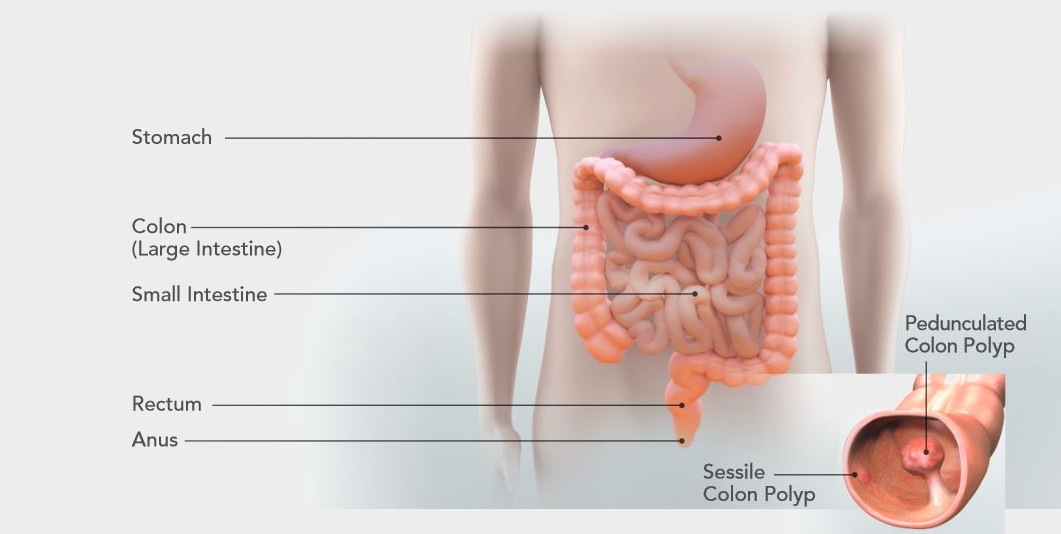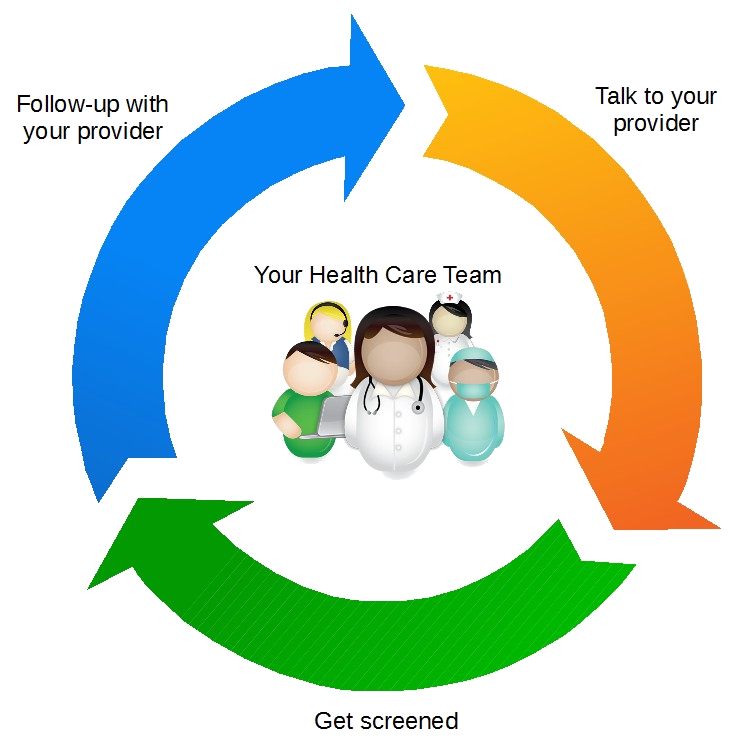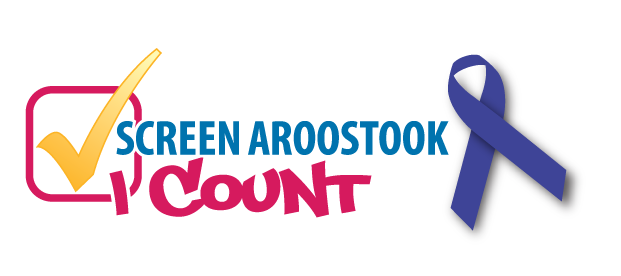Colorectal (Colon) Cancer Screening
What Is Colorectal Cancer?
Colorectal cancer is cancer that occurs in the colon or rectum. Sometimes it is called colon cancer. The colon is the large intestine or large bowel. The rectum is the passageway that connects the colon to the anus.
Screening Saves Lives
Colorectal cancer is the second leading cancer killer in the United States, but it doesn’t have to be. If you are 50 or older, getting a colorectal cancer screening test could save your life. Here’s how:
- Colorectal cancer usually starts from precancerous polyps in the colon or rectum. A polyp is a growth that shouldn’t be there.
- Over time, some polyps can turn into cancer.
- Screening tests can find precancerous polyps, so they can be removed before they turn into cancer.
- Screening tests also can find colorectal cancer early, when treatment works best.
Who Gets Colorectal Cancer?
- Both men and women can get it.
- It is most often found in people 50 or older.
- The risk increases with age.
Are You at Increased Risk?
Your risk for colorectal cancer may be higher than average if:
- You or a close relative have had colorectal polyps or colorectal cancer.
- You have inflammatory bowel disease, Crohn’s disease, or ulcerative colitis.
- You have a genetic syndrome such as familial adenomatous polyposis (FAP) or hereditary nonpolyposis colorectal cancer.
People at increased risk for colorectal cancer may need earlier or more frequent tests than other people. Talk to your doctor about when to begin screening, which test is right for you, and how often you should be tested.

Patient Centered Care
At Pines Health Services, our Patient Centered approach to health care will ensure that you have a team that is committed to your health and will be with you every step of the way.

Talk to your provider today...
If you're 50 years old or older, it's time to talk to your provider about your options for colon cancer screening.Log into the Patient Portal and use the “Ask the Nurse a Question” feature to request an appointment, or call ☎ (800) 371-6240.
For more information about colorectal screening, visit
